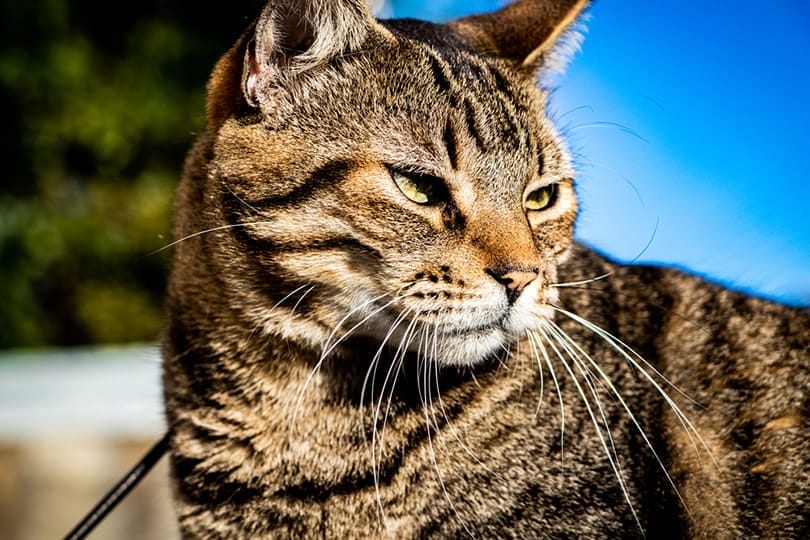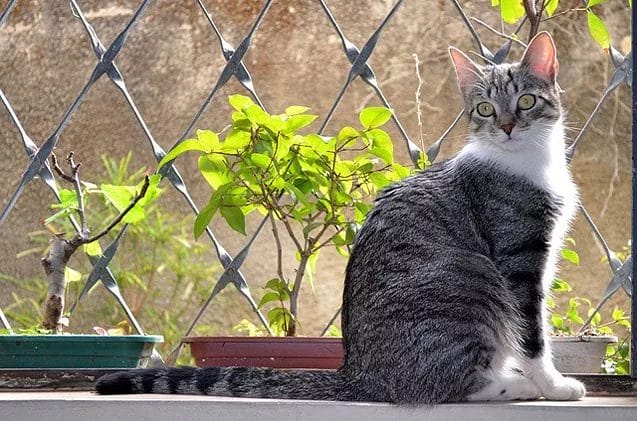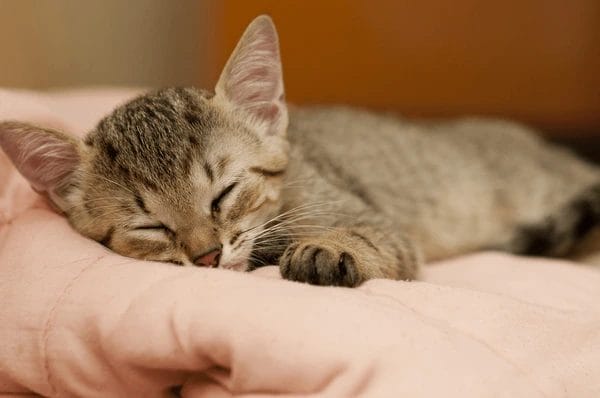Native shorthair cats were crossed with imported purebreds like Abyssinians, Siamese, and American Shorthairs to create the foundation Brazilian Shorthairs. The breed was recognized by WCF in the 1980s. They have short, sleek coats that showcase their elegant bodies.
Introduction The Brazilian Shorthair Cat Breed
Brazilian Shorthairs have a medium-sized, muscular build with relatively long, slender legs. Their large ears are set wide apart and have pointed tips. Coat colors include black, blue, chocolate, lilac, cinnamon, fawn, red, cream, silver, brown, and tortoiseshell. Eye color ranges from gold to green. These cats weigh 6-11 lbs as adults.

Affectionate with Family: ⭐⭐⭐⭐
Amount of Shedding: ⭐⭐
General Health: ⭐⭐⭐⭐
Potential for Playfulness: ⭐⭐⭐⭐⭐
Tendency to Vocalize: ⭐⭐⭐
Kid-Friendly: ⭐⭐⭐⭐
Friendly Toward Strangers: ⭐⭐⭐
Easy to Groom: ⭐⭐⭐⭐⭐
Intelligence: ⭐⭐⭐⭐
Pet Friendly: ⭐⭐⭐
- Appearance: Muscular, elegant cats with large, wide-set ears, almond eyes, and sleek, short coat.
- Characteristics: Energetic, athletic, vocal, highly affectionate and loyal.
- Popularity: Uncommon outside Brazil, gaining attention from breeders worldwide.
- Temperament: Intelligent, interactive, energetic. Devoted to their families but cautious with strangers.
- Lifespan: 10-15 years.
- Coat Color: Black, blue, chocolate, lilac, cinnamon, fawn, red, cream, silver, brown, tortoiseshell.
- Origins: Native Brazilian shorthairs crossed with Abyssinian, Siamese, and American Shorthair breeds.
Caring for a Brazilian Shorthair
Food:
- High-protein, grain-free dry and wet cat food. Avoid fillers.
- Feed 1/2 cup dry kibble per 6 lbs of body weight, adjusted as needed.
- Ensure constant access to fresh, clean water. Change water daily.
Environment:
- Safe, enriching indoor home environment. Give them access to sunny windows.
- Cat trees, scratching posts, cat-safe plants placed near windows for climbing and napping.
- Litter boxes kept extremely clean. Avoid scented litters.
Grooming:
- Brush weekly using a stainless steel comb to remove dead hair.
- Trim nails every 2-3 weeks. Check ears for dirt buildup.
- Use a damp cloth for gentle facial wiping around eyes and nose.
- Start young to accept grooming readily. Praise and reward cooperation.

Take Care Method: Engage their natural athleticism and hunting instinct with interactive play sessions using wands, laser toys, puzzle feeders and treat balls. Harness train them for walks.
Adopting/Buying a Brazilian Shorthair Cat Breed
- Popularity Locations: Primarily Brazil. Also European countries like France, Germany, Netherlands.
- Average Price: $600 – $1000 USD
- Adoption/Rescue: Check local shelters and breed-specific rescues. Review adoption ads thoroughly.
What to Check Before Adopting:
- Overall health, weight, coat condition, energy levels
- Confirm vaccinations and vet care are current
- Review medical records for genetic conditions
Preparing for a Brazilian Shorthair
- Cat proof your home by securing chemicals, plants, and breakable objects
- Have essential supplies ready – food, litter, bed, scratcher, grooming tools, toys
- Find a trusted veterinarian and schedule first exam and shots
- Give them time to adjust before introducing other pets
- Provide daily interactive playtime and environmental enrichment
Essential Equipment:
- Sturdy cat trees and scratching posts
- Interactive wand toys, treat puzzles, feather teasers
- Ceramic or stainless steel food and water bowls
- Slicker brush for weekly grooming
- Breakaway safety collar with ID tag
Common Diseases:
- Hypertrophic cardiomyopathy
- Periodontal disease
- Skin allergies

Important Vaccines:
- Feline viral rhinotracheitis
- Calicivirus and panleukopenia
- Rabies
Naming Your Brazilian Shorthair
Choose a fun, exotic name that complements their energetic personality. Consider Brazilian names, athletic names, or food/spice names like Cocoa, Mango, Samba, Felix, Dash, or Luna.
Do Brazilian Shorthairs like going outside?
Yes, they love outdoor access to satisfy their energetic natures. Harness train them for safe walks. Ensure proper ID.
Are Brazilian Shorthairs intelligent cats?
Absolutely! They are highly clever and can readily learn tricks, play fetch, or walk on a leash.
How many types of Brazilian Shorthairs are there?
There are no separate breeds. Coat colors include black, blue, chocolate, cinnamon, fawn, red, cream, silver and tortoiseshell.
How to stop a Brazilian Shorthair from biting?
Redirect biting onto appropriate toys, not hands. Say “no” firmly and ignore them after biting. Praise gentle play.
How to stop a Brazilian Shorthair from scratching furniture?
Provide sturdy scratching posts. Praise them for using scratchers. Consider cat-safe deterrent sprays on furniture. Trim nails regularly.
How to socialize and raise a friendly Brazilian Shorthair?
Handle kittens frequently from a young age. Reward calm, friendly behavior. Gently expose them to new sights and sounds.
How to train a Brazilian Shorthair?
Use positive reinforcement like treats and praise. Engage their intelligence with clicker training and puzzles. Practice basic commands like sit, stay, come.
How often should Brazilian Shorthairs see the vet?
Annual exams are recommended. Senior cats over 10 years old should visit the vet twice yearly. Address any changes promptly.
Are Brazilian Shorthairs good family pets?
Yes, they become very attached to their families. Supervise young kids. Introduce properly to other household pets.
Are Brazilian Shorthairs good with children?
Yes, they tend to be patient and playful with gentle kids if socialized early. Always supervise young children with pets.
Are Brazilian Shorthairs good with other pets?
Yes, they generally coexist well with other pets if introduced properly. Monitor interactions with smaller pets at first.
Can Brazilian Shorthairs cause allergies?
Moderate likelihood. Their short coats produce less dander but saliva and skin oils can still trigger allergies.
Are Brazilian Shorthairs aggressive?
No, they are not typically aggressive. Intact males may show some territorial behaviors that can be managed through neutering and training.
Do Brazilian Shorthairs have hair loss issues?
No, hair loss is uncommon in healthy Brazilian Shorthairs. Significant shedding may indicate an underlying medical issue requiring veterinary attention.
Are you a cat lover who wants to learn more about your furry friends? Do you want to find the best cat food, cat care tips, and resources for your cats? If so, you’ve come to the right place! Welcome to Cat Food Site, the ultimate website for cat enthusiast.
Here you will find everything you need to know about cats Breed, from their health and behavior to their breeds, cat diet and names. You will also discover the latest cat news, cat nutrition, trends, and memes from around the web.

